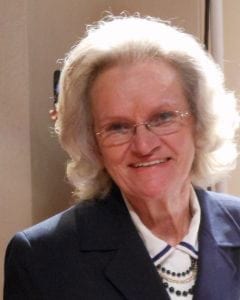If you’re looking for a time table for adjusting to, and accepting, the diagnosis of a rare disease, you won’t find one, because there isn’t one.
The variety of rare diseases coupled with the variety of families, all coming from different backgrounds, means there will be a variety of responses to such a diagnosis.
While you may have an emotional response to the news, the way in which you respond depends very much on your own personality. Emotions can be very powerful, leaving some with depression, anxiety, loneliness and despair, but motivating others to jump into action. Most people do manage to move beyond those strong initial feelings.
Back in 1966, when we first noticed there was something wrong with our oldest daughter, Kelley, I was stunned. And I was fearful for her. During the seven years we spent trying to find a diagnosis, I mostly felt frustrated. Then, when we learned the name for her condition, we also learned that very little was known about it. Perhaps the most difficult words we heard were, “There is no cure.” In fact, as in many cases, there was not even a treatment available. The medical community could only offer to care for the many symptoms that would continue to occur.
As the years passed, we were able to connect with others with the same or similar condition, share our experiences and learn from each other. I noticed that some people process reactions quickly. They get out in the community and tell everyone that they are dealing with a monster of a disease, and they want help. I’ve witnessed the father who started his own company to work with scientists to find a treatment, the couple who headed up a successful non-profit, and the mother who worked through her state legislators after her son died, to pass a law that will give other parents the rights she was denied.
At the other end of the spectrum, some retreat into their own personal space while they go through the process of trying to understand what the heck just happened and wonder if there is anything they can do.They don’t feel a need to become deeply involved with others, but quietly go about dealing with the condition in their own way.
Most of us fall somewhere between these positions. We gather together and meet up on the internet, doing what we can when we can to encourage others.
Whichever category you might fall into, it is important to know that there is no right or wrong way to come to grips with such an overwhelming diagnosis as a rare disease. IT IS NOT EASY! We all process at our own rate of speed. Remember that accepting reality doesn’t mean that you will ever like it. You don’t have to like it. You just need to deal with it without being in a constant emotional state.
There is a special prayer that I’ve used through the years in many situations. It helped me with get beyond the fear and emotion of Kelley’s diagnosis. Blessedly, by the grace of God, Kelley seemed to reach acceptance when she was young. While accepting, she also fought like a tiger (there was a picture of tiger on the wall in her room) to do the best she could with the body she had.
If you are troubled by the fact that you don’t seem to be able to accept the reality of a rare disease diagnosis, be patient with yourself. This prayer might help you, too.
SERENITY PRAYER
God, grant me the
SERENITY
to accept the things I cannot change,
COURAGE
to change the things I can,
And WISDOM
to know the difference.
 About the Author: Denise Crompton and her husband Bob, raised four children, the oldest of whom, Kelley, had the rare disease of Mucolipidosis 3. The many years that they spent caring for Kelley prompted Denise to write two books. Kelley’s Journey: Facing a Rare Disease with Courage chronicles their own daughter’s experiences. Diagnosis: Rare Disease includes some of the experiences of 12 more families, and was written to help raise awareness of all that is involved in living with rare conditions. All of Denise’s royalties go toward rare disease research. The Cromptons live in New Hampshire, where they spend their retirement years enjoying their many grandchildren, while still reaching out to help families with rare diseases.
About the Author: Denise Crompton and her husband Bob, raised four children, the oldest of whom, Kelley, had the rare disease of Mucolipidosis 3. The many years that they spent caring for Kelley prompted Denise to write two books. Kelley’s Journey: Facing a Rare Disease with Courage chronicles their own daughter’s experiences. Diagnosis: Rare Disease includes some of the experiences of 12 more families, and was written to help raise awareness of all that is involved in living with rare conditions. All of Denise’s royalties go toward rare disease research. The Cromptons live in New Hampshire, where they spend their retirement years enjoying their many grandchildren, while still reaching out to help families with rare diseases.


